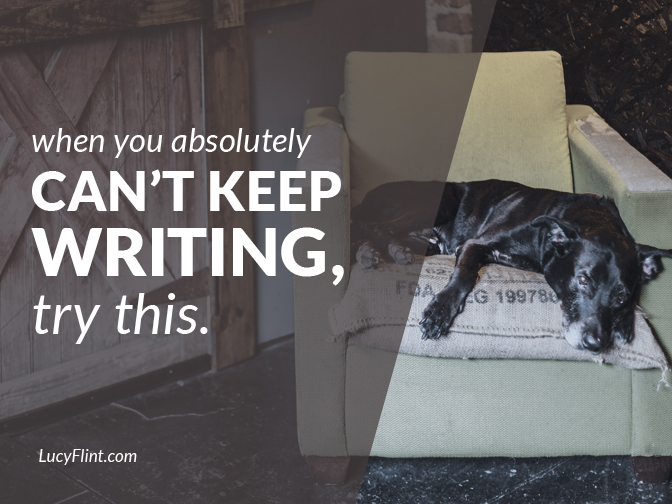We're Brave Enough To Embrace Change. (So bring it on, 2016.)
/The courage that we need to dive into a challenge isn't just the bravery to face big obstacles, big effort, big problems.
We need the courage to face a new self.
Whatever challenge we are heading toward—whatever resolution we are most aiming to keep—it's going to turn us into new people.
Which is amazing, wonderful, and worthwhile. But tough.
The courage it takes to dive into a challenge is transformative courage.
It's the kind of bravery we need while we change from the old person into the new one.
Good stuff, right? I can nod along to all this: Yes, I want to be the kind of person who is professional, who reads a lot more fiction, who works out every day, who writes a bazillion books!
I want all those things! I'm up for the challenge! And I'm really excited to go for all my dreams.
And yet, I don't want to give up my grip on the old person.
She's familiar. She's comfortable. Now and then she would eat a lot of cheese, curl up in baggy sweats, and watch black & white mystery shows on Netflix.
Might not be the stuff that moves mountains, but it was super.
Anyone with me on this?
Okay, so how do we do this thing: How do we find the courage to let go of our old selves, and reach for the new?
The courage to be transformed, the courage to become the new person who does the big thing?
A bit of understanding goes a long way.
It helps to see why we got to where we were before.
Instead of shrieking "Baggy sweats again! You slob!" I've realized that I was doing something really necessary in those Netflix binge nights.
Those sweats were a haven for a while: it was a good place to be. And those mystery movies helped me deal with tough times. Three-times-a-week gin & tonics were a lovely reward at the end of some really hard, emotional days.
I made those choices for certain reasons, and I did the best with what I had. (Survival mode isn't always pretty.)
Don't leave a gap.
If that was the old way I relaxed, it's not going to work to just cut that habit out and replace it with "celery sticks and a nightly run."
Yeah, that would take me toward my new goals, but the courage to stick that habit: it's just not there. I know that.
Instead, I'm looking at what I was accomplishing, with the g&t and Netflix. I felt cozy, relaxed, and nourished. (Kinda.)
Replacing this with a habit that thwarts that old instinct isn't going to last. But what if I replace it with: Fantastic fiction to read, a snuggly and beautiful afghan, and fruity green tea.
Whoa. Suddenly I have a new cozy, relaxing, nourishing habit. Which will be so much easier to fall into.
When you want a new, splendid habit, try to line it up with something you were accomplishing in your old habit. I'm guessing we'll stick with it so much better.
Make a date with the Old You.
I don't know, maybe strict habit-setters would howl at this, but I think it's valuable:
When I outlaw something entirely, forever and ever, I do a really bad job of sticking with it.
The habit itself feels really brittle. I start to think that if I backslide once, I'm done for.
... And then all I can think about is backsliding.
Instead, I'm a fan of making a date with the old me. Of doing something I used to do all the time, but doing it intentionally, with boundaries.
So, I'm not trying to fall back into bad habits (and obviously, this won't work for certain toxic behaviors).
Instead, I'm intentionally revisiting an old space, in a healthy way.
I still love a good gin & tonic. I still love a mystery movie binge.
But not every night. Maybe only on the weekends. Or even: every other weekend.
See what I mean?
What's really exciting is when you've lost your taste for the old thing: Discovering that the old behavior has lost its grip on you. That's what makes this step so powerful
If the old habit wasn't a terrible thing, it can be safely revisited and enjoyed, without wrecking all your plans.
Stay close to your deeper reasons.
As I'm implementing new behaviors and new routines, small step by small step, it helps me to keep remembering why these small things matter.
I remind myself all the time how the small parts of these habits add up. How the bigger habits move me more toward the kind of writer, the kind of creative, and the kind of woman I most want to be.
I mentioned this in the last post, but it's worth saying again: Having a really deep purpose, and a clear vision of what you're aiming for, goes such a long way for anchoring new habits.
If a resolution is surface-based, it can be shrugged off as a whim.
But when I've attached it to more deep and true ideas of who I want to be, my motivation increases.
Like my new reading plan: It isn't about checking titles off a list. It's about becoming the kind of thinker and wordsmith I want to be for the rest of my life.
That's the kind of motivation I need to give up Netflix.
It's so much easier to let go of old habits when I have my heart firmly set on becoming more of who I was designed to be.
So try it. Surround yourself with encouraging quotes, with handwritten reminders. Journal about it. Do some freewriting.
But keep pointing yourself toward the kind of person you want to be, and keep that vision clear and strong.
The clearer that vision is, the easier it is to love every step of the process.
Celebrate. Every step forward.
If you've hung out here a while, you know that this is how I like to do things: We celebrate. We celebrate every little thing.
Because I think that joy and courage can go hand in hand. Bravery strengthens enthusiasm; cheerfulness empowers courage.
It's a brilliant cycle.
So, seriously: congratulate yourself for every tiny step (and half-step) that you take forward.
Don't shrug it off, don't roll your eyes, and don't berate yourself for not having everything done at once.
Love yourself through the whole process of this transformation, and you'll find more and more courage rising to help you.
You want a quote? I totally want a quote. I saw this recently on Twitter, thanks to the brilliant K.M. Weiland:
Remember that writing is translation, and the opus to be translated is yourself. — EB White.
WHOA, right? I mean—right?? Isn't that the truth of it?
Every piece I've written, every single one, has translated some of me into the piece.
But it's also translated me into a whole new version of myself.
Pretty incredible, when you think about it.
Even little pieces, like these blogs: it doesn't seem noticeable, one blog at a time, but can I just say that I'm such a different person now, thanks to nearly a year of steady blogging?
And honestly, I'd rather be this version of myself. (She's so much more fun!)
So, I'm up for it, 2016. I don't know what this will look like. Maybe the changes will be small, or maybe I won't even recognize myself.
Either way, I'm in. I'm all in.
















